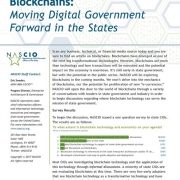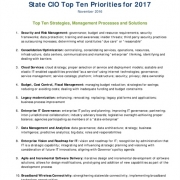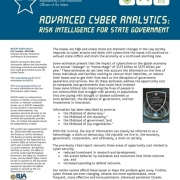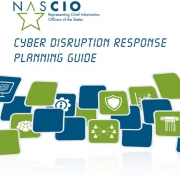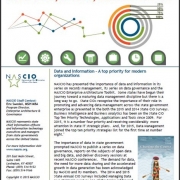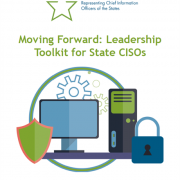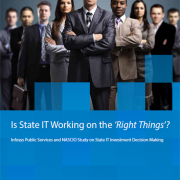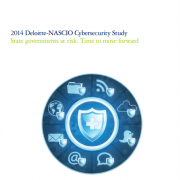This study reports findings and analysis of a comprehensive survey of State Chief Information Security Officers (CISOs) conducted by NASCIO in partnership with Deloitte. The results of the 2014 Deloitte-NASCIO Cybersecurity Study confirm the growing importance of cybersecurity for states. The following key themes emerged from our analysis:
Maturing role of the CISO: State CISO role continues to gain legitimacy in authority and reporting relationships. The responsibilities of the position are becoming more consistent across states, yet expanding.
Continuing budget-strategy disconnect: The improving economy and states’ growing commitment to cybersecurity have led to an increase – albeit small, in budgets. CISOs have also been successful at tapping supplemental resources, whether from other state agencies, federal funding, or various agency and business leaders. Nevertheless, budgets are still not sufficient to fully implement effective cybersecurity programs – it continues to be the top barrier for CISOs according to the survey results.
Cyber complexity challenge: State information systems house a wide range of sensitive citizen data, making them especially attractive targets for cyber-attacks. CISOs are concerned about the intensity, volume and complexity of cyber threats that run the gamut from malicious code to zero-day attacks.
Talent crisis: The skill sets needed for effective cybersecurity protection and monitoring are in heavy demand across all sectors. State CISOs are struggling to recruit and retain people with the right skills, and they will need to establish career growth paths and find creative ways to build their cybersecurity teams.
Download
Media:
Webinars:

